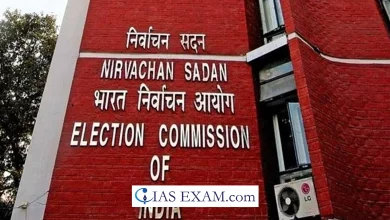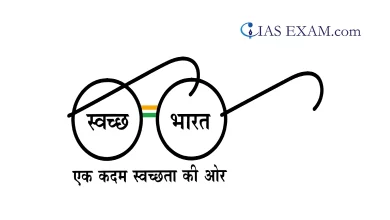Upholding the Rights of Consumers with Disabilities
GS Paper 2 - Govt. Policies & Interventions

Context
15th March every year is celebrated as World Consumers Rights Day which aims at creating awareness regarding the rights and responsibilities of consumers worldwide. However, of all the consumers, the ones with disabilities are often overlooked. Despite their significant presence within the consumer demographic, consumers with disabilities frequently find themselves marginalized in both the discourse and the practical implementation of consumer rights initiatives.
This underscores the need for greater attention and inclusivity in addressing the specific challenges and barriers faced by consumers with disabilities in the marketplace.
Aspects related to Consumers with Disabilities (CwD)
Demography and Stats
According to the World Health Organization (WHO), over 1 billion people, or 15% of the global population, live with some form of disability. In India, the 2011 Census recorded 26.8 million persons with disabilities, accounting for 2.21% of the total population.
Rights of Consumers with Disabilities
- Equal Treatment – Consumers with disabilities have the right to equal treatment in the marketplace. This includes access to goods, services, and facilities on an equal basis with others, without discrimination based on their disability.
- Non-Discrimination – Businesses are prohibited from discriminating against consumers with disabilities in the provision of goods, services, and employment opportunities. This includes refusing service, providing inferior service, or charging higher prices based on disability.
- Accessibility – Consumers with disabilities have the right to accessible products, services, and public spaces. This includes physical accessibility (such as ramps and elevators), communication accessibility (such as sign language interpreters or accessible websites), and information accessibility (such as accessible formats of documents).
- Accommodations – Businesses are required to make reasonable accommodations to ensure that consumers with disabilities can access their goods and services. This may include modifying policies, practices, or procedures to accommodate the needs of individuals with disabilities.
- Privacy – Consumers with disabilities have the right to privacy and confidentiality in their interactions with businesses. Personal information related to their disability should be treated with sensitivity and protected from unauthorized disclosure.
International Legal Framework
- United Nations Convention on the Rights of Persons with Disabilities (UNCRPD) – The UNCRPD, signed in 2006, is a comprehensive international convention that supports the rights and dignity of people with disabilities. It assures that all individuals with disabilities have full and equal access to all human rights and basic freedoms.
- Standard Rules on Equalization of Opportunities – The United Nations General Assembly adopted these principles in 1993, providing a framework for governments to protect the rights and inclusion of people with disabilities. The guidelines address issues such as accessibility, education, employment, social security, and rehabilitation.
Legal Frameworks in India
- Rights of Persons with Disabilities Act, 2016 – This is India’s principal law that protects the rights and privileges of people with disabilities. It recognizes 21 different categories of disability and establishes accessibility requirements for built environments, transportation, information, and communication. The Act also establishes reservation in higher education and government jobs, as well as social security provisions.
- PwD Act, 1995 – This was India’s previous disability law, which was eventually superseded with the Rights of Persons with Disabilities Act of 2016. It identified seven categories of impairments and prioritized prevention, rehabilitation, and building a barrier-free setting.
- Rehabilitation Council of India Act, 1992 – Regulates and monitors the training of rehabilitation professionals.
- Mental Healthcare Act, 2017- Protects the rights and dignity of persons with mental illness.
Challenges faced by PwD
- Physical and Accessibility Barriers: Inaccessible constructed settings, such as the absence of ramps, elevators, and broad entrances, limit their movement and independent access to physical locations. Inadequate accessible transportation alternatives, which limit their capacity to commute and obtain products and services. There is a lack of assistive technology and adaptable equipment to help them in their everyday lives and consumer activities.
- Communication Barrier – Unavailability of information in alternative formats (e.g., Braille, audio, sign language) for CwDs with visual, hearing, or cognitive impairments. Websites and digital platforms that are not compliant with web accessibility standards, making them difficult to navigate and use.
- Sociocultural Barriers – CwDs face societal stigma, prejudice, and a lack of understanding about their various needs and capacities. CwDs are excluded from mainstream consumer experiences, and product and service design takes little into account their preferences and needs. Misconceptions regarding CwDs’ purchasing power and market potential contribute to their marginalization.
- Financial Barriers – Living expenditures for people with disabilities are higher because they require specific assistive devices, healthcare, and personal support services. They have limited access to appropriate financial resources, work prospects, and social security measures, which limits their purchasing power as consumers.
Measures to Alleviate condition of CwDs
- Business as Starting Point – In general, businesses do not see people with disabilities as their target customers. This is demonstrated by their inaccessible offers, which are usually aimed for mainstream customers. As a result, if not out of benevolence, firms may consider making their goods available just to increase their consumer base.
- Bridging Gaps – Effective policy initiatives can help to bridge the sensitisation gap among businesses. For example, in October 2023, the FSSAI issued a recommendation to all food company operators to include QR codes including product information on all food products. This simple but effective approach will enable persons with vision impairments to obtain critical product information on their own.
- Support from Government – The government, too, has the potential to make a difference. The government may explore implementing broad accessibility rules for all goods and services. India may learn from initiatives in Australia, the United States, and Canada and incorporate similar tactics into its own policy.
- Raising Awareness – It is critical to create awareness of present rights and benefits accessible to consumers with disabilities under the two main legislation. While consumer awareness has been a significant priority of the state, particularly since the introduction of the flagship ‘Jago Grahak Jago’ Campaign, customers with disabilities have gotten little attention.
Way Forward
Ensuring the rights of Persons with Disabilities (PwD) is more than a legal requirement; it is a moral necessity. Societies may foster a more inclusive and fair marketplace for everyone by encouraging accessibility, nondiscrimination, and equal treatment. Businesses and governments must collaborate to meet the special obstacles that customers with disabilities experience, as well as to secure their full participation in the economy and society.
SOURCE: The Hindu





.png)



